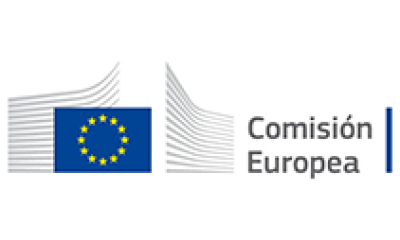
06 de Octubre, 2023
20 de Noviembre, 2024
11:59 PM
Hi-tech capacities for crisis response and recovery after a natural-technological (NaTech) disaster HORIZON-CL3-2024-DRS-01-04
Investigación /Innovación
Unión Europea
Comisión europea
4.000.000 EUR
Internacional
Facultad de Ciencias Naturales
The general objective is to strengthen crisis management capabilities in the aftermath of natural-technological (NaTech) events, such as geological disasters (e.g., volcanic eruptions, seismic activities, tsunamis, landslides) and extreme climate events (e.g., floods, storms, storm surges, fires, droughts)
Applications must be submitted electronically via the Funding & Tenders Portal electronic
submission system (accessible via the topic page in the Search Funding & Tenders section).
Paper submissions are NOT possible.
Applications must include a plan for the exploitation and dissemination of results
including communication activities, unless provided otherwise in the specific call
conditions.
the limit for a full application is 45 pages
Unless otherwise provided for in the specific call conditions, only legal entities forming a consortium are eligible to participate in actions provided that the consortium includes, as beneficiaries, three legal entities independent from each other and each established in a different country as follows:
-at least one independent legal entity established in a Member State; and
-at least two other independent legal entities, each established in different Member
States or Associated Countries.
Projects’ results are expected to contribute to some or all of the following outcomes:
Development of a holistic vision of crisis management after telluric (e.g. volcanic, seismic, tsunami, landslide) or extreme climate events (e.g. floods, storms, storm surges, fires, droughts) producing impacts on critical assets (e.g. infrastructures, industries) and creation of new management framework for handling NaTech crises;
Enhanced existing crisis management tools to develop a common platform (shared among public and private operators) allowing cross-border exchanges and decision-making, while respecting legal frameworks and responsibilities;
Demonstrated operational protocols and development of standard operating procedures able to respond to NaTech crises in cross-border configurations, including comprehensive risk modelling of worst-case scenarios taking into account cascading effects and future impacts of climate change, and taking into consideration spatial information and data;
Improvement of our understanding and capabilities to identify and mitigate risks associated with interdependencies across infrastructures and other human (social and economic) systems.
Gestión de crisis ante eventos climáticos
OBJETIVO/DESCRIPCIÓN
The general objective is to strengthen crisis management capabilities in the aftermath of natural-technological (NaTech) events, such as geological disasters (e.g., volcanic eruptions, seismic activities, tsunamis, landslides) and extreme climate events (e.g., floods, storms, storm surges, fires, droughts)
REQUISITOS CLAVE
Applications must be submitted electronically via the Funding & Tenders Portal electronic
submission system (accessible via the topic page in the Search Funding & Tenders section).
Paper submissions are NOT possible.
Applications must include a plan for the exploitation and dissemination of results
including communication activities, unless provided otherwise in the specific call
conditions.
the limit for a full application is 45 pages
Unless otherwise provided for in the specific call conditions, only legal entities forming a consortium are eligible to participate in actions provided that the consortium includes, as beneficiaries, three legal entities independent from each other and each established in a different country as follows:
-at least one independent legal entity established in a Member State; and
-at least two other independent legal entities, each established in different Member
States or Associated Countries.
Projects’ results are expected to contribute to some or all of the following outcomes:
Development of a holistic vision of crisis management after telluric (e.g. volcanic, seismic, tsunami, landslide) or extreme climate events (e.g. floods, storms, storm surges, fires, droughts) producing impacts on critical assets (e.g. infrastructures, industries) and creation of new management framework for handling NaTech crises;
Enhanced existing crisis management tools to develop a common platform (shared among public and private operators) allowing cross-border exchanges and decision-making, while respecting legal frameworks and responsibilities;
Demonstrated operational protocols and development of standard operating procedures able to respond to NaTech crises in cross-border configurations, including comprehensive risk modelling of worst-case scenarios taking into account cascading effects and future impacts of climate change, and taking into consideration spatial information and data;
Improvement of our understanding and capabilities to identify and mitigate risks associated with interdependencies across infrastructures and other human (social and economic) systems.
ÁREA/TEMA ESPECÍFICO
Gestión de crisis ante eventos climáticos
